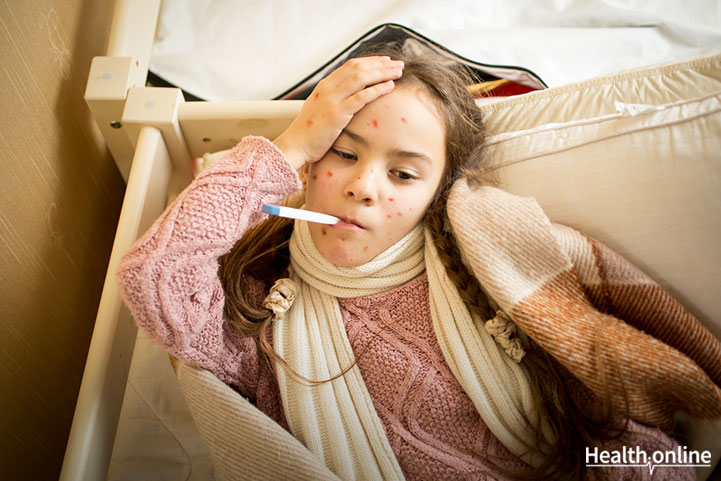
Symptoms of Measles
A widespread skin rash is a classic sign of measles. The rash may appear about three to five days after infection, and may last up to ten days after treatment. The rash, which appears as red, itchy bumps, commonly develop on the face, and slowly spread to other parts of the body. Although the rash is the key symptom of measles, it is accompanied by a number of other symptoms that generally appear within 14 days of exposure to the virus. Some of these symptoms include:
- White spots in the mouth
- Sore throat
- Runny nose
- Muscle aches
- Light sensitivity
- Red eyes
- Fever (normally up to 104°F / 40°C)
- Dry cough
Measles can be life threatening—about one in ten patients will need hospital treatment. Around 30 percent of people with measles (normally children under the age of five and adults over 20 years) will develop other complications. For example, if one is pregnant, measles increases the risk of low birth weight, premature labor, or miscarriage. Other complications may include:
- Seizures —These are mainly caused by fever. It is estimated that 1 in every 15 children will experience febrile seizures as a result of measles.
- Low platelet count (thrombocytopenia) — Measles can lead to a decrease in platelets (the type of blood cells that are responsible for the clotting of the blood).
- Pneumonia —Pneumonia is one of the common complications that can be brought about by measles. People with a compromised immune system may sometimes develop severe pneumonia, which can be fatal.
- Diarrhea —Together with vomiting, diarrhea is one of the common complications associated with measles. Both of these are major causes of dehydration in measles patients.
- Ear infection —Ear infection is one of the most common condition caused by measles, which can lead to loss of hearing.
- Brain swelling— Although rare, brain swelling caused by measles can lead to permanent brain damage or death. According to the UK’s National Health Service (NHS), this complication occurs in only 1 out of every 25,000 cases.




